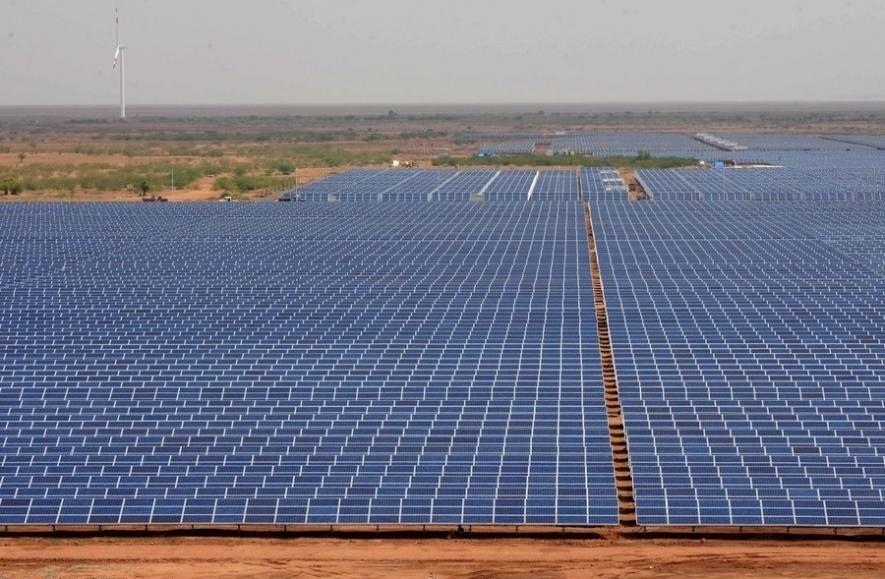Finance Ministry Defers Decision on Safeguard Duty on Solar Equipment

The Ministry of Finance, on Monday 13 August, deferred the recent imposition of a safeguard duty on solar cells and modules in compliance with an order of the Odisha High Court.
On 30 July, the Ministry had notified a two-year duty regime on these products, starting with a 25% duty for the first year and 20% and 15% for the subsequent six-month periods. The decision had thrown India’s growing solar power sector into “confusion and chaos” with neither domestic producers of solar energy generating equipment nor developers of solar power project (mst of whomuse imported solar cells and modules) happy with the duty, as Newsclick had recently reported.
The notification was issued despite an injunction granted by the Odisha High Court against imposing the duty until 20 August, the next date of hearing of a petition filed by Acme Solar holdings, a solar plant developer. Acme had approached the court challenging the original recommendation made on 16 July by the Ministry of Commerce and Industry’s Directorate General of Trade Remedies that led to the duty being imposed. Noting that the duty notification was in violation of its earlier orders, the High Court on 9 August directed the government to withdraw the notification by 13 August.
On 13 August, the Ministry issued a circular stating that importers need not immediately pay the duty. Customs would however make provisional assessments of the duty and take a letter of undertaking or bond from the importer to pay the duty in the future if is upheld by the courts.
“This is a circular. A provisional assessment of the duty will be made and if the court says that safeguard duty is applicable, they will have to pay back, if it says that duty is not applicable, then they will not pay,” an unnamed Finance Ministry official told the renewable energy information service Mercom India.
Nearly 90% of modules used by India’s growing solar power sector are imported, largely from China, Malaysia and Taiwan. As Newsclick has reported, the duty would have increased power costs of the end consumer by increasing the costs of setting up solar power plants. Moreover, the developers who had won contracts to set up these plants would need to follow lengthy legal proceedings to revise their tariff commitments to state distribution utilities. Even domestic solar manufacturers, who had sought the duty in the first place, would not have benefitted as the duty left out more than half of India’s solar manufacturing capacity situated in Special Economic Zones, most notable Adani Group’s Mundra Solar PV, India’s largest manufacturing facility. Goods sold from SEZs to the domestic market are subject to safeguard duty. As Newsclick had separately analysed, excluding them from the duty could have reinterpreted SEZ rules and set a precedent for all goods sold from SEZs to the domestic market. ENDS
Get the latest reports & analysis with people's perspective on Protests, movements & deep analytical videos, discussions of the current affairs in your Telegram app. Subscribe to NewsClick's Telegram channel & get Real-Time updates on stories, as they get published on our website.
























